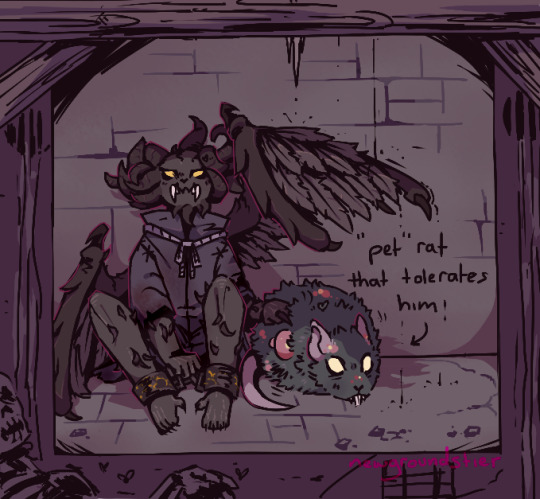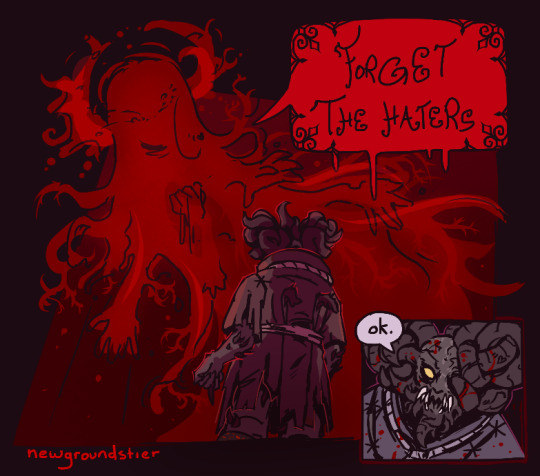25 M 🏳️⚧️🏳️🌈. I like games and comics. Big fan of the inherent homoeroticism of beating the shit outa somebody. +18 please. I post lore sometimes when I feel like it and write fics and original fiction. Begging people to read Dai Dark.Main AO3NeoCities
Last active 2 hours ago
Don't wanna be here? Send us removal request.
Text
In general, understanding radical feminism for what it is and why it appeals to many people requires an understanding that the greatest strength of radical feminism as a tool for understanding misogyny and sexism is also its greatest faultline.
See, radical feminism is a second wave position in feminist thought and development. It is a reaction to what we sometimes call first wave feminism, which was so focused on specific legal freedoms that we usually refer to the activists who focused on it as suffragists or suffragettes: that is, first wave feminists were thinking about explicit laws that said "women cannot do this thing, and if they try, the law of the state and of other powerful institutions will forcibly evict them." Women of that era were very focused on explicit and obvious barriers to full participation in public and civil life, because there were a lot of them: you could not vote, you could not access education, you could not be trained in certain crucial professions, you could not earn your own pay even if you decided you wanted to.
And so these activists began to try to dig into the implicit beliefs and cultural structures that served to trap women asking designated paths, even if they did wish to do other things. Why is it that woman are pressured not to go into certain high prestige fields, even if in theory no one is stopping them? How do our ideas and attitudes about sex and gender create assumptions and patterns and constrictions that leave us trapped even when the explicit chains have been removed?
The second wave of feminism, then, is what happened when the daughters of this first wave--and their opponents--looked around and said to themselves: hold on, the explicit barriers are gone. The laws that treat us as a different and lesser class of people are gone. Why doesn't it feel like I have full access to freedoms that I see the men around me enjoying? What are the unspoken laws that keep us here?
And so these activists focused on the implicit ideas that create behavioral outcomes. They looked inward to interrogate both their own beliefs and the beliefs of other people around them. They discovered many things that were real and illuminated barriers that people hadn't thought of, especially around sexual violence and rape and trauma and harassment. In particular, these activists became known for exercises like consciousness-raising, in which everyday people were encouraged to sit down and consider the ways in which their own unspoken, implicit beliefs contributed to general societal problems of sexism and misogyny.
Introspection can be so intoxicating, though, because it allows us to place ourselves at the center of the social problems that we see around us. We are all naturally a little self centered, after all. When your work is so directly tied to digging up implications and resonances from unspoken beliefs, you start getting really into drawing lines of connection from your own point of interest to other related marginalizations--and for this generation of thinkers, often people who only experienced one major marginalization got the center of attention. Compounding this is the reality that it is easier to see the impacts of marginalization when they apply directly to you, and things that apply to you seem more important.
So some of this generation of thinkers thought to themselves, hang on. Hang on. Misogyny has its fingers in so many pies that we don't see, and I can see misogyny echoing through so many other marginalizations too--homophobia especially but also racism and ableism and classism. These echoes must be because there is one central oppression that underlies all the others, and while theoretically you could have a society with no class distinctions and no race distinctions, just biologically you always have sex and gender distinctions, right? So: perhaps misogyny is the original sin of culture, the well from which all the rest of it springs. Perhaps there's really no differences in gender, only in sex, and perhaps we can reach equality if only we can figure out how to eradicate gender entirely. Perhaps misogyny is the root from which all other oppressions stem: and this group of feminists called themselves radical feminists, after that root, because radix is the Latin word for root.
Very few of this generation of thinkers, you may be unsurprised to note, actually lived under a second marginalization that was not directly entangled with sexism and gender; queerness was pretty common, but queerness is also so very hard to distinguish from gender politics anyway. It's perhaps not surprising that at this time several Black women who were interested in gender oppression became openly annoyed and frustrated by the notion that if only we can fix gender oppression, we can fix everything: they understood racism much more clearly, they were used to considering and interrogating racism and thinking deeply about it, and they thought that collapsing racism into just a facet of misogyny cheapened both things and failed to let you understand either very well. These thinkers said: no, actually, there isn't one original sin that corrupted us all, there are a host of sins humans are prone to, and hey, isn't the concept of original sin just a little bit Christianocentric anyway?
And from these thinkers we see intersectional feminists appearing. These are the third wave, and from this point much mainstream feminist throughout moves to asking: okay, so how do the intersections of misogyny make it appear differently in all these different marginalized contexts? What does misogyny do in response to racial oppression? What does it look like against this background, or that one?
But the radical feminists remained, because seeing your own problems and your own thought processes as the center of the entire world and the answer to the entire problem of justice is very seductive indeed. And they felt left behind and got quite angry about this, and cast about for ways to feel relevant without having to decenter themselves. And, well, trans women were right there, and they made such a convenient target...
That's what a TERF is.
Now you know.
8K notes
·
View notes
Text
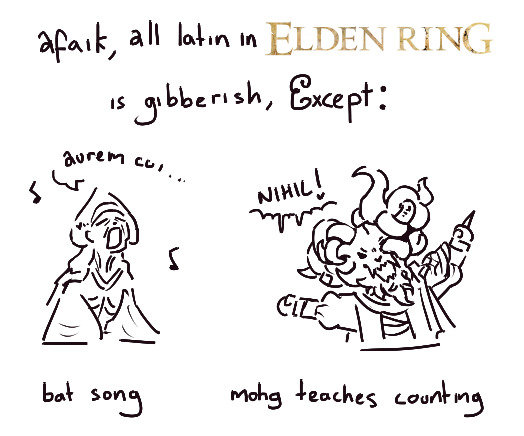


expect my 2 hour lore video on the hitherto undiscussed latin bat outer god within the week
1K notes
·
View notes
Text
A healthy and thriving literary culture is obviously a complex thing with a lot of moving parts, but there seem to be two obvious necessities that the internet has severely damaged: community ties, and reliable quality filters (magazines, trusted stores, etc.) This is a problem for everyone, since literature is a core part of how we come to conceptualize ourselves: our past, our future, what we are, and what is possible.
I've been publishing fiction online for a few years now, and I'm increasingly running up against the fact that a lot of the people I desperately want to connect with, the well-read eccentrics, literary perverts, etc - are people who resolutely do not want to waste their time trying out random fiction on the internet. They rely on that now-vanished quality filter and, partially as a result, they are also steeped in cynicism. Most of them are deeply suspicious of the idea that it's possible for anyone to make anything worthwhile in this present moment.
If we want to have anything resembling a healthy literary culture, we have to fight tooth and nail to find a way to believe things are still possible. The work of rebuilding is slow, and it is excruciating, especially in an age when trying to trust in there being any possibilities at all in this world. But we must try, otherwise we will only guarantee our own failure.
Here’s what I’ve been doing. It has been going modestly well (I just passed 6000 subscribers!) and if any of the above speaks to you, I hope you can find a way to experiment with me.
246 notes
·
View notes
Video
Melanie’s World Jun 1997 Archived Web Page 🧩 🔊 🏳️🌈
2 notes
·
View notes
Text
toxic yuri this toxic yuri that. and just when you think it couldnt get any crazier they break out the spinning piano
#YOU GOTTA WATCH O NI SAMA E…#THIS ISNT EVEN SCRATCHING THE SURFACE OF THE CRAZY SHIT THAT HAPPENS IN IT
3K notes
·
View notes
Photo
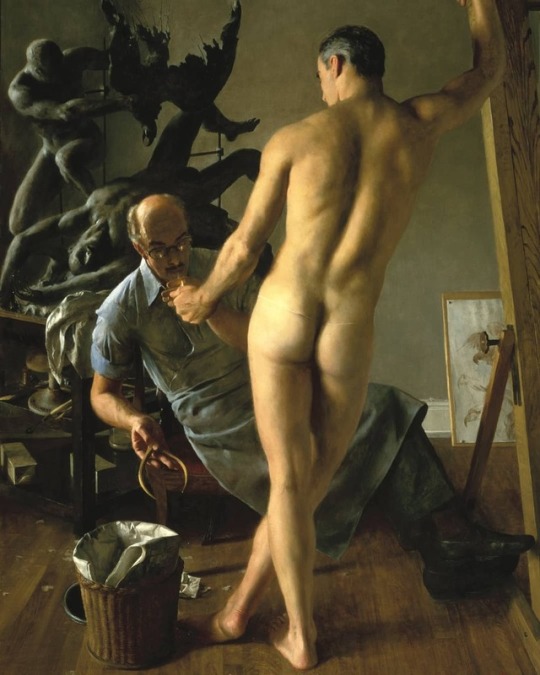
John Koch (1909-1978) The Sculptor, 1964.
34K notes
·
View notes
Text
straight people are no longer allowed to use the word twink. people calling any shit twink right now. 9 times out of 10 they're objectively not a twink. you either mean gay man, feminine man, a trans man, or you're just saying that because you can't say faggot
17K notes
·
View notes
Text
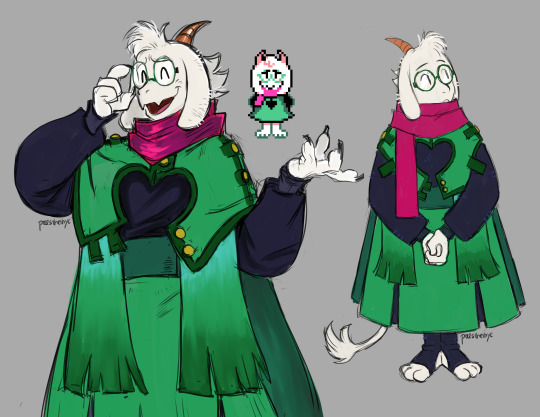
The power of fluffy boys shines within you.
1K notes
·
View notes
Text
It's Pride month! If you're a new follower and aren't familiar with my work yet, or are looking for comics to read, check out...
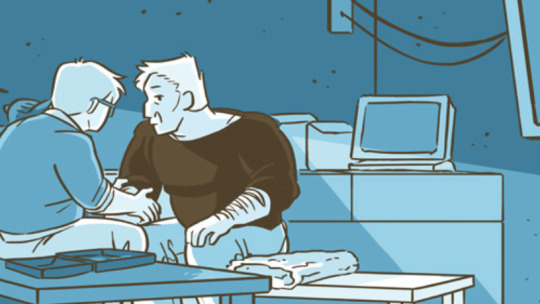
O Human Star: my 2012-2020 webcomic about an inventor who wakes up in a robot body after being dead for 16 years and seeks out his former partner and the young android who shares a copy of his mind.
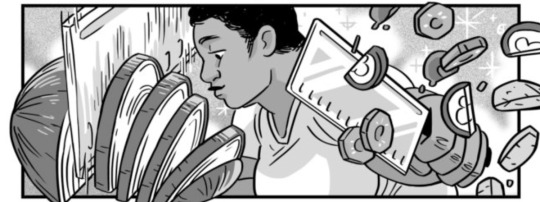
Meal: an aspiring chef moves to town, meets a cute girl, and tries to get hired at a restaurant that specializes in insect cuisine. Written with my friend Soleil Ho.
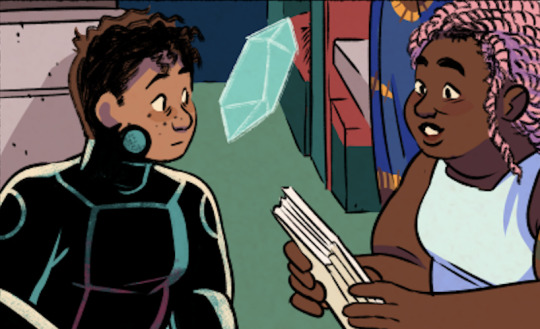
Across a Field of Starlight: two nonbinary teens from two very different spacefaring societies meet by chance and stay in touch even as a galaxy-spanning war threatens them both.

Adversary: A former women's self defense instructor stumbles into a messy relationship with a former student who has since transitioned. My covid-era feel-bad book. Adults only.
I also have digital versions of comics I've made over the years at my itch.io and Patreon, and signed books in my store. Thanks for your support, and happy Pride!
2K notes
·
View notes
Text

school has been killing me but at least i finished this one
43 notes
·
View notes
Text

i think mohg and miquella should just chill and hang out and be friends and its okay guys
61 notes
·
View notes










